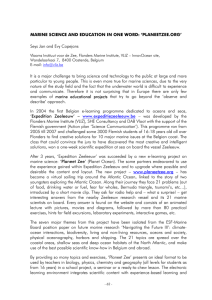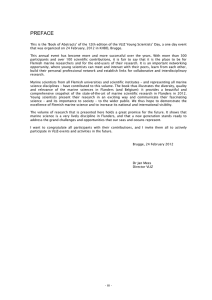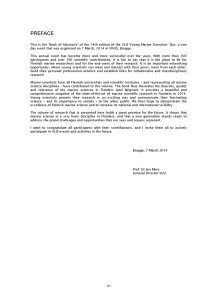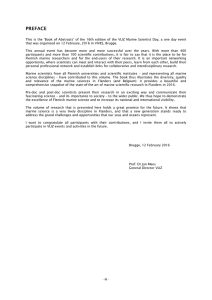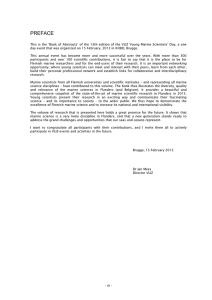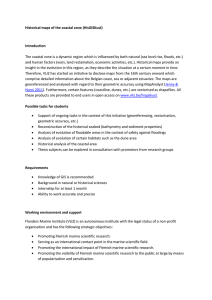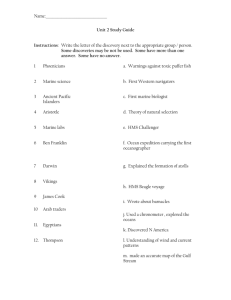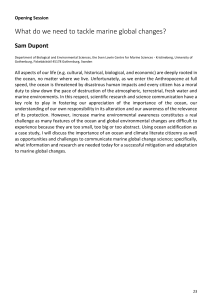Seys Jan and Evy Copejans
advertisement
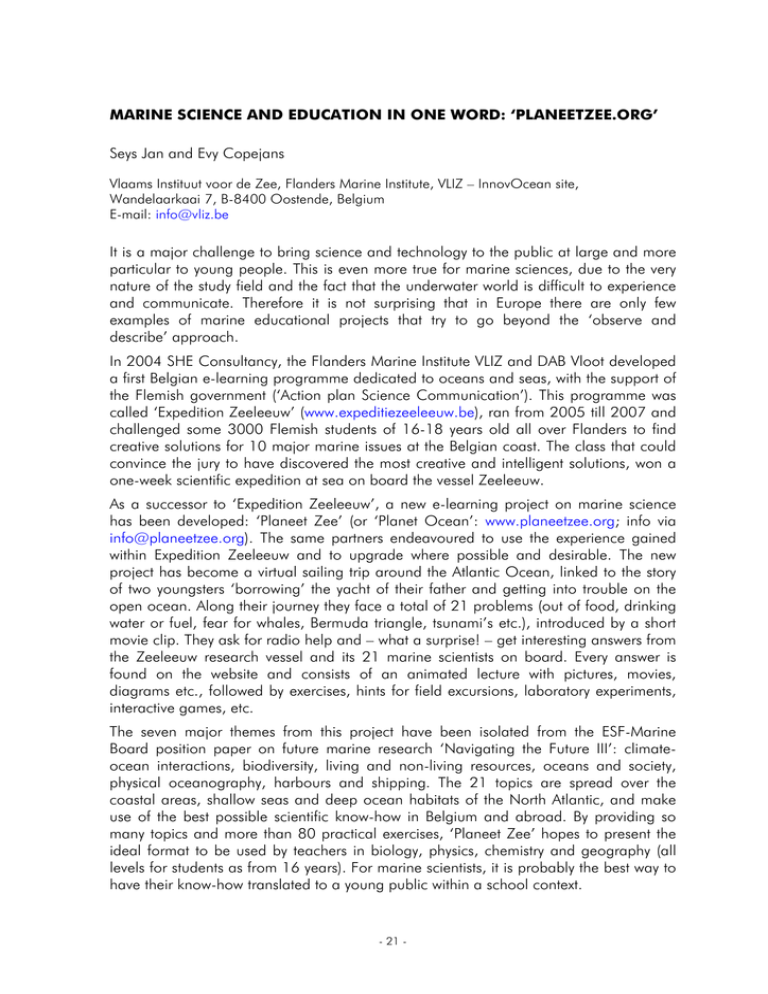
MARINE SCIENCE AND EDUCATION IN ONE WORD: ‘PLANEETZEE.ORG’ Seys Jan and Evy Copejans Vlaams Instituut voor de Zee, Flanders Marine Institute, VLIZ – InnovOcean site, Wandelaarkaai 7, B-8400 Oostende, Belgium E-mail: info@vliz.be It is a major challenge to bring science and technology to the public at large and more particular to young people. This is even more true for marine sciences, due to the very nature of the study field and the fact that the underwater world is difficult to experience and communicate. Therefore it is not surprising that in Europe there are only few examples of marine educational projects that try to go beyond the ‘observe and describe’ approach. In 2004 SHE Consultancy, the Flanders Marine Institute VLIZ and DAB Vloot developed a first Belgian e-learning programme dedicated to oceans and seas, with the support of the Flemish government (‘Action plan Science Communication’). This programme was called ‘Expedition Zeeleeuw’ (www.expeditiezeeleeuw.be), ran from 2005 till 2007 and challenged some 3000 Flemish students of 16-18 years old all over Flanders to find creative solutions for 10 major marine issues at the Belgian coast. The class that could convince the jury to have discovered the most creative and intelligent solutions, won a one-week scientific expedition at sea on board the vessel Zeeleeuw. As a successor to ‘Expedition Zeeleeuw’, a new e-learning project on marine science has been developed: ‘Planeet Zee’ (or ‘Planet Ocean’: www.planeetzee.org; info via info@planeetzee.org). The same partners endeavoured to use the experience gained within Expedition Zeeleeuw and to upgrade where possible and desirable. The new project has become a virtual sailing trip around the Atlantic Ocean, linked to the story of two youngsters ‘borrowing’ the yacht of their father and getting into trouble on the open ocean. Along their journey they face a total of 21 problems (out of food, drinking water or fuel, fear for whales, Bermuda triangle, tsunami’s etc.), introduced by a short movie clip. They ask for radio help and – what a surprise! – get interesting answers from the Zeeleeuw research vessel and its 21 marine scientists on board. Every answer is found on the website and consists of an animated lecture with pictures, movies, diagrams etc., followed by exercises, hints for field excursions, laboratory experiments, interactive games, etc. The seven major themes from this project have been isolated from the ESF-Marine Board position paper on future marine research ‘Navigating the Future III’: climateocean interactions, biodiversity, living and non-living resources, oceans and society, physical oceanography, harbours and shipping. The 21 topics are spread over the coastal areas, shallow seas and deep ocean habitats of the North Atlantic, and make use of the best possible scientific know-how in Belgium and abroad. By providing so many topics and more than 80 practical exercises, ‘Planeet Zee’ hopes to present the ideal format to be used by teachers in biology, physics, chemistry and geography (all levels for students as from 16 years). For marine scientists, it is probably the best way to have their know-how translated to a young public within a school context. - 21 -
